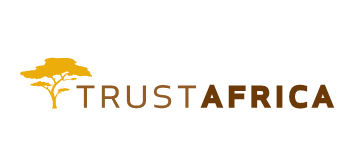Background
The increasing spread of nefarious activities of the Boko Haram sect in Nigeria, massive violation of human rights, loss of lives and destruction of infrastructure are serious issues that cannot be dismissed with a wave of a hand. According to the Human Rights Watch (2014), Boko Haram insurgency has led to the high rate of human casualties, as thousands of deaths have been recorded from 2009 to 2014. These numbers have changed the status of women into widows and the children into orphans in all the North Eastern states; with Borno state having highest casualties.
The most prevalent Human Rights violation is the Sexual and Gender Based Violence (SGBV), which is a widespread phenomenon among female internally displaced persons (IDP’s) within various camps and in host communities. (International Displacement Monitoring Centre, May, 2014). Attacks on defenseless women and children and using them as shield and bait are part of the strategies adopted by the terrorists with the most celebrated being the abduction of 276 girls from a secondary school, their sexual violation while in captivity as well as those of other women whose numbers are undetermined. Unfortunately, Nigerians and particularly government are mainly pre-occupied by the scale of the humanitarian crises forcing limited attention to the gross human rights abuses particularly those related to Sexual and Gender Based Violations (SGBV) being suffered by women, girls and boys.
Justification
There are on record some attempts by various entities to determine and address the prevalence of SGBV in IDP Camps. However, the findings and end use for these studies are not in the public domain or to specific ends that provide content and evidence for accountability of all actors. It is important to extend to survivors of SGBV abuses in the conflict, support to seek redress and find closure.
The rights of the victims of SGBV abuses to eventually seek for justice can only be supported with a documentation of their experiences and a profiling of those they accuse of abusing them. WRAPA is seeking support to undertake a mapping of the incidence, forms and survivor profiles of SGBV victims in selected IDP Camps in Borno State. Of the six North East affected states, Borno State has the highest number (211) of documented formal and informal IDP Camps and Host communities (2017 NEMA Registration Database).
Aims/Objectives
- Conduct a mapping of voluntarily declared survivors of Sexual and Gender Based Violence in the IDP camps and affected (selected) communities in Borno State for the purposes of .appropriate documentation to support the advocacy for accountability of actors in the conflict.
- Provide programming content towards psychosocial support for Sexual and Gender Based Violence survivors.
Techniques
- Identify and Map of Internally Displaced Persons (IDP) camps and selected host communities. The WRAPA PSSGE mapping exercise report provides a baseline for this while the project activity partnerships established will facilitate approvals by duty bearers for access to IDP camps and host communities.
- Simple random sampling method to select respondents for the cross-sectional survey
- Key Informant Interviews (KII) using purposive sampling method.


